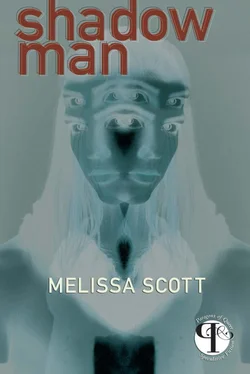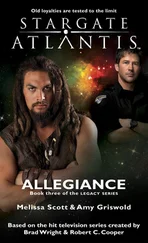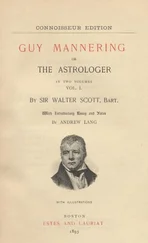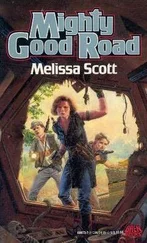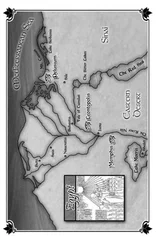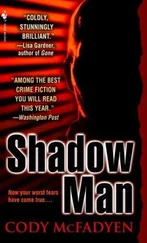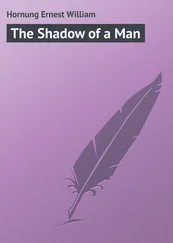“Not a problem,” Malemayn said, and the screen went blank.
Warreven sighed, touched the keypad to shut down the communications system. “Are you hungry?” he asked, and was surprised to find that he himself was.
They ate in near silence, just the occasional words from the media center to break the stillness, watching the light fade over the Harbor Market and outside the flat’s windows. Warreven listened for a while to the newsreaders’ chatter—nothing new, still no word from Temelathe or Tendlathe or the mosstaas , though the Big Six were rumored to have asked for a meeting with Temelathe the next morning—and then pushed himself up off the couch and went out onto his porch, taking the bottle of sweetrum with him. It was almost empty, and he could feel it slurring his movements, but at least the pain had receded. He leaned against the railing, the land breeze eddying past, warm against his shoulders, looked through the deepening twilight toward the Harbor Market. In the pens next door, the land-spiders trilled and purred, disjointed bits of sound, but no one came to comfort them. That was unusual—the spinners were always very conscientious—but then, this night was hardly ordinary.
It was still hard to believe that Tendlathe was doing this—that Tendlathe, whom he’d known, man and boy, for almost twenty-five years, had put him and Haliday and everyone like them, firmly outside the human race. But that was the problem, of course: he himself had never been boy nor man, except perhaps in law, and that had meant that Tendlathe had always had forbidden possibilities—impossibilities, by his definition—dangling before his eyes. And it hadn’t helped, Warreven admitted silently, that he’d enjoyed teasing Tendlathe, had made no secret of the fact that he would sleep with him, as long as no change of gender, of identity, had been required. And I would have done it, too, and cheerfully, up until a week ago.
He heard the chime of an incoming call from the media center, but didn’t turn his head. Something wasn’t right, something more than the restless spiders next door. The air was damp and heavy, a haze of light hanging over the Gran’quai, but that was nothing unusual. He tilted his head carefully to one side, listening, and then realized what it was. The streets were silent, none of the usual murmur of traffic on the ring roads or down by the harbor. It was as if Bonemarche was waiting, everyone either already at the harbor, with the ranas, or hiding in the safety of their houses—
“Warreven?” Tatian was standing in the doorway, hair and beard turned brighter gold by the lights behind him. “There’s a call.”
Warreven made a face, pushed himself away from the rail. His bruises had stiffened while he stood there, and he had to catch himself against the door frame. Tatian stood watchful, not offering help, but within reach, and Warreven had to admit it was gracefully done. “Who is it?”
Tatian shrugged, and Warreven looked at the screen. Chauntclere Ferane looked back at him, broad face and salt-stained beard framed by the darkness of a dockside office. The windows were closed behind him, light glinting from the narrow panes, but the noise of the drums was still loud, doubling the sound from the news channel.
“Raven, it’s me.”
Warreven looked around for the remote, and Tatian handed it to him. Warreven nodded his thanks and hit the button that activated his own camera. An icon lit, warning him that the transmission was now reciprocal, and Chauntclere flinched visibly.
“God and the spirits, you look a mess.”
“I’m getting tired of hearing that,” Warreven said, and immediately wished he hadn’t. “I’m all right. It looks worse than it is.”
“It looks bad enough,” Chauntclere said. The sun-carved lines at the corners of his eyes and between his eyebrows were suddenly prominent. “I thought—they said the ghost ranas had nearly killed you, but I didn’t believe it.”
Believe it, Warreven thought. And a lot worse for Haliday. He said, “I’m—I will be all right. Hal was hurt a lot worse than me.”
“I’m sorry. Is she—?” Chauntclere stopped, as though he didn’t know how to ask.
“Ȝe’s going to be all right,” Warreven said. He saw Chauntclere’s eyes flicker at the creole word and used it again deliberately. “That’s why they attacked us, Clere, because 3e and I are herms.”
“And because of who you are,” Chauntclere said automatically. “I mean, you’re the seraaliste , and everybody knows Haliday—”
“Everybody knows Haliday because 3e went to the Council to get the legal right to call 3imself a herm,” Warreven said. “And they know me because I handle trade cases. The other herm who works with Haliday.” Out of the corner of his good eye, he saw Tatian shift as though he were uncomfortable and made a face. “I’m sorry, Clere, it’s been a bitch of a day.”
“Yeah.” Chauntclere gave a slight, embarrassed shrug, one shoulder moving under the faded cloth of his working vest. “But Hal is going to be all right, isn’t she—zhe?”
Warreven nodded, and Chauntclere sighed with what looked like genuine relief.
“I’m glad.”
And to be fair, Warreven thought, he probably was. There was nothing mean about Clere. He said, “Are you at the Harbor? What’s going on down there?”
Chauntclere glanced over his shoulder, turned back to the camera. “Oh, yes, I’m still on the ’quai. I can’t get off, the ranas won’t let me past—won’t let any of us past, they say they won’t let us off-load cargo until Temelathe agrees to the mosstaas hunting the ghost ranas. I heard about an hour ago that Temelathe was supposed to come down here himself to talk to the leaders, but I don’t know if it’s true.”
“Wonderful,” Warreven muttered. Still, it might do some good: Temelathe knew how to balance the various factions; he had been doing it better than anyone else for almost thirty years.
Chauntclere looked over his shoulder again and shook his head. “I’ve got to go, this is the only working line on the ’quai, and I can’t hog it. But I’m glad you’re all right.”
“I will be,” Warreven said. “I’m glad you called, Clere—” The screen went dark before he could be sure the other had heard. He let himself sink back onto the couch, wondering how he’d fallen into the middle of all of this. Part of him wanted to be at the Harbor—he had earned that much, to see this through—but another part cringed at the thought of facing the darkened streets again. The memory of the ghost ranas returned, black robes and white faces, so that for an instant he could almost taste the fog and the shame and the fear. He made a face, as though that could erase the memory, and saw Tatian looking at him curiously. “I half-wish I was down there,” he said defiantly, and Tatian gave a lopsided smile.
“I bet. I think I’d rather watch the narrowcast, myself.”
“The other half is perfectly happy to,” Warreven said. He looked at the screen again. “I wonder if Temelathe is going to try to negotiate with them?”
“He’d be smart to, I think,” Tatian said, pushing himself away from the wall and coming to collect the dishes that remained on the table. “Do you want anything?”
Warreven started to shake his head, said instead, “No, thanks.”
Tatian nodded vaguely, and started for the kitchen. Warreven leaned back against the cushions, grateful for their softness, and watched the rainbows gather around the lights. The doutfire would be wearing off soon; he thought about asking Tatian to bring him some, but couldn’t muster the energy.
The media center buzzed again, startling him fully awake. He touched keys automatically, accepting the call, and frowned as a string of codes flashed across the base of the screen. The forming image split, dividing in half and then in thirds, and steadied. Three faces looked out of the screen, slightly elongated despite the system’s attempt to keep the pictures proportional. Folhare he recognized at once; the other two, both men, were less familiar. He frowned, and then recognized the darker of the two. Losson Trencevent was one of the Modernists’ regular speakers, one of the people who were usually seen on the narrowcasts and quoted in the broadsheets. He had never much liked Losson and didn’t bother to hide his annoyance.
Читать дальше
